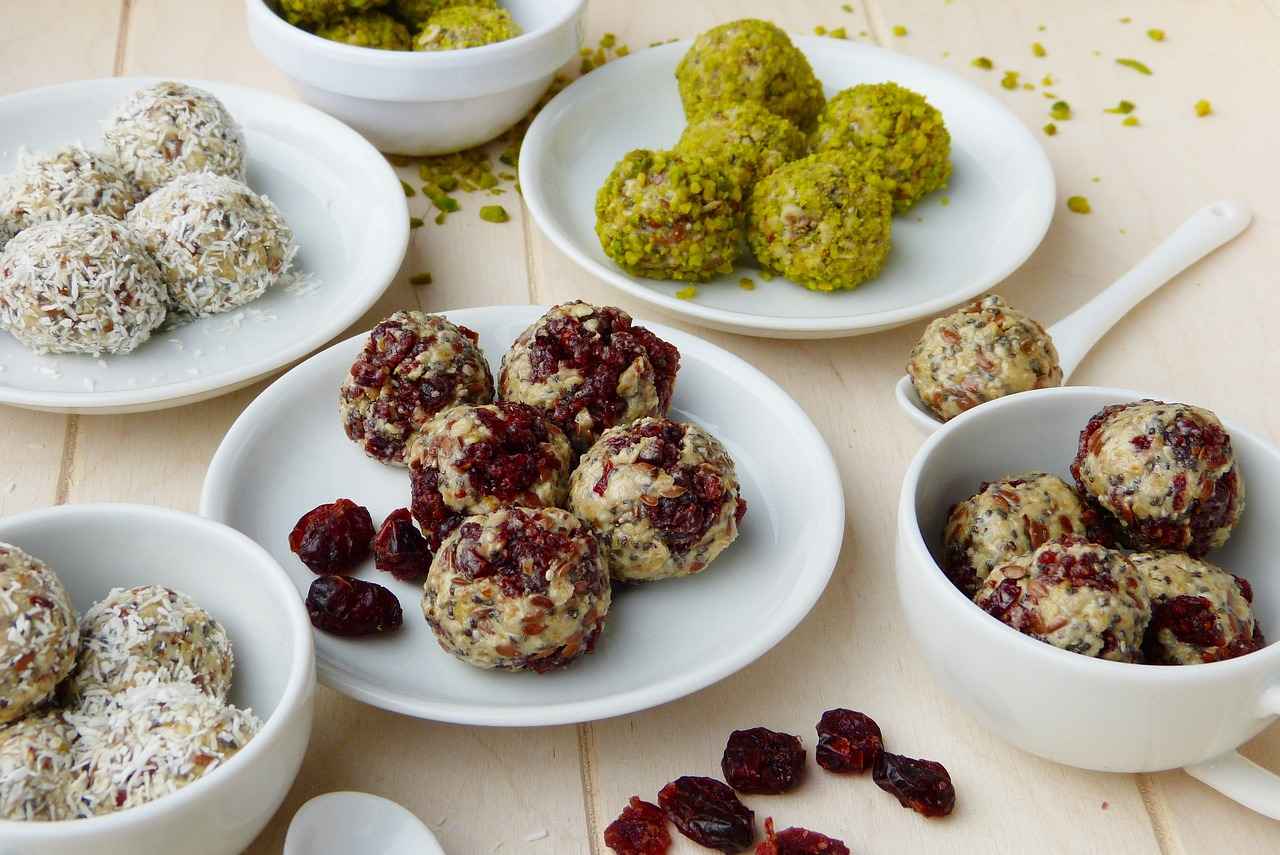This article delves into the significant benefits of Proline-Rich Polypeptide (PRP) in enhancing immunity. We will explore its mechanisms, sources, and overall health impacts, providing a comprehensive understanding of how PRP can contribute to a healthier immune system.
What is Proline-Rich Polypeptide (PRP)?
Proline-Rich Polypeptide (PRP) is a bioactive compound found primarily in colostrum, the first milk produced by mammals after giving birth. This peptide is known for its ability to modulate the immune system, making it a valuable component in promoting health and wellness.
How PRP Enhances Immune Function
PRP enhances immune function by regulating immune responses. It helps maintain a balance between the activation and inhibition of immune cells, ensuring that the body can effectively fight off pathogens without triggering excessive inflammation.
The Mechanism of Action of PRP
- Influence on Cytokine Production: PRP modulates the production of cytokines, which are essential for cell signaling in immune responses. This modulation ensures that the immune system reacts appropriately to threats.
- Interaction with Immune Cells: PRP interacts with various immune cells, enhancing their functionality and promoting a more efficient immune response.
Sources of Proline-Rich Polypeptide
PRP can be obtained from natural sources such as colostrum supplements and certain dairy products. These sources are rich in PRP, enabling individuals to incorporate it into their diets easily.
Health Benefits of PRP Beyond Immunity
In addition to its immune-boosting properties, PRP offers several other health benefits:
- Anti-Inflammatory Properties: PRP helps reduce chronic inflammation, which is linked to various health issues.
- Potential Role in Disease Prevention: Emerging research suggests that PRP may aid in preventing autoimmune disorders and other diseases.
How to Incorporate PRP into Your Diet
To enhance your immune health, consider the following:
- Dietary Sources: Include PRP-rich foods such as colostrum and certain dairy products.
- Supplementing with PRP: For those who may not get enough PRP through diet, supplements are readily available and can be an effective alternative.
Conclusion: The Future of PRP in Immune Health
As research on PRP continues to expand, its potential benefits for immune health and overall wellness become increasingly evident. Staying informed about PRP can empower individuals to make healthier lifestyle choices, ultimately leading to enhanced well-being.

What is Proline-Rich Polypeptide (PRP)?
Proline-Rich Polypeptide (PRP) is an intriguing bioactive compound that has garnered attention for its role in immune system modulation. This peptide is composed primarily of proline amino acids, which contribute to its unique properties and functions. Understanding the significance of PRP is essential for anyone interested in enhancing their health and well-being.
PRP is primarily derived from the thymus gland, an organ that plays a pivotal role in the development and functioning of the immune system. It is known to influence the activity of various immune cells, thereby assisting in the regulation of immune responses. By promoting a balanced immune reaction, PRP helps the body defend against infections while preventing excessive inflammation.
- Immune Regulation: PRP aids in the modulation of immune cell activity, ensuring that the body can effectively respond to pathogens without overreacting.
- Cell Communication: This peptide enhances communication between immune cells, which is vital for a coordinated immune response.
- Reduction of Inflammation: PRP exhibits anti-inflammatory properties, contributing to the reduction of chronic inflammation in the body.
Furthermore, research indicates that PRP may have a role in disease prevention. Its ability to regulate immune responses can potentially help in preventing autoimmune disorders and other chronic diseases. This makes it a valuable compound for health-conscious individuals seeking natural ways to boost their immunity.
Incorporating PRP into one’s diet can be achieved through various means, including dietary sources rich in this peptide and available supplements. Foods such as colostrum and certain protein-rich foods are known to contain PRP, making them excellent choices for enhancing immune health.
In conclusion, understanding Proline-Rich Polypeptide (PRP) is crucial for appreciating its numerous health benefits. As research continues to uncover its potential, individuals can take proactive steps to incorporate PRP into their health regimen, thereby supporting their immune system and overall wellness.

How PRP Enhances Immune Function
Proline-Rich Polypeptide (PRP) plays a pivotal role in enhancing the immune system by regulating immune responses. This regulation is essential for maintaining a balanced immune system that effectively combats pathogens without overreacting and causing harm to the body.
One of the primary functions of PRP is its ability to modulate the activation and inhibition of various immune cells. By doing so, it ensures that the immune response is appropriately calibrated. For instance, when the body encounters an infection, PRP helps activate immune cells, such as T-cells and B-cells, which are crucial for fighting off pathogens. However, once the threat is neutralized, PRP also assists in the inhibition of these cells to prevent an excessive immune response that could lead to tissue damage.
Furthermore, PRP influences the production of cytokines, which are signaling molecules that facilitate communication between immune cells. By promoting a balanced cytokine profile, PRP ensures that the immune response is neither too weak nor overly aggressive. This balance is critical in preventing conditions such as autoimmune disorders, where the immune system mistakenly attacks healthy tissues.
Additionally, PRP enhances the interaction between various immune cells, fostering a more efficient immune response. This interaction not only improves the body’s ability to defend against infections but also contributes to the overall health of the immune system.
In conclusion, the role of PRP in enhancing immune function is multifaceted, involving the regulation of immune cell activity, modulation of cytokine production, and facilitation of immune cell interactions. Understanding these mechanisms is vital for appreciating the broader implications of PRP on health and wellness.
The Mechanism of Action of PRP
The Mechanism of Action of Proline-Rich Polypeptide (PRP) explores the intricate ways in which PRP influences the immune system. By modulating various biochemical pathways, PRP plays a pivotal role in enhancing immune function and maintaining homeostasis. This section delves into the specific mechanisms through which PRP operates, focusing on cytokine production and immune cell interactions.
PRP functions primarily by influencing the production of cytokines, which are essential signaling molecules that mediate and regulate immunity, inflammation, and hematopoiesis. Through its biochemical interactions, PRP can enhance the production of beneficial cytokines while suppressing those that may lead to excessive inflammation. This balance is crucial for a well-functioning immune response, ensuring that the body can effectively combat pathogens without triggering harmful overreactions.
Furthermore, PRP interacts with various immune cell types, including T cells, B cells, and macrophages. By enhancing the activity of these cells, PRP ensures a more robust immune defense. For instance, PRP can stimulate T cell proliferation and differentiation, promoting a more effective adaptive immune response. This interaction not only boosts the immune system’s ability to fight infections but also aids in the development of immunological memory, which is vital for long-term protection against diseases.
Additionally, the anti-inflammatory properties of PRP contribute significantly to its mechanism of action. By regulating cytokine levels and influencing immune cell activity, PRP can help mitigate chronic inflammation, which is often a precursor to various diseases. This dual role of boosting immune response while simultaneously keeping inflammation in check is what makes PRP a valuable component in maintaining overall health.
In summary, the mechanism of action of PRP is multifaceted, involving the modulation of cytokine production and the enhancement of immune cell interactions. Understanding these mechanisms is essential for appreciating how PRP can bolster immunity and contribute to overall health.
Influence on Cytokine Production
Cytokines play a pivotal role in the immune system, acting as signaling molecules that facilitate communication between cells. They are essential for coordinating the body’s response to infections, inflammation, and other immune-related activities. Proline-Rich Polypeptide (PRP) has been shown to significantly influence the production of these critical proteins, ensuring that the immune response is finely tuned.
When the body encounters pathogens, cytokines are released to signal immune cells to act. However, an excessive or insufficient cytokine response can lead to health issues, such as chronic inflammation or autoimmune disorders. PRP helps maintain this balance by modulating cytokine production, which is crucial for a well-regulated immune response.
Research indicates that PRP can enhance the production of anti-inflammatory cytokines while simultaneously reducing the levels of pro-inflammatory cytokines. This dual action allows the immune system to respond appropriately without overreacting, which is vital for preventing tissue damage and ensuring effective pathogen clearance.
Furthermore, PRP’s ability to influence cytokine production is not limited to a single pathway. It interacts with various signaling pathways, including those related to interleukins and tumor necrosis factors. This multifaceted approach enhances the immune system’s adaptability, enabling it to respond efficiently to diverse threats.
In summary, the modulation of cytokine production by PRP is a critical mechanism through which this bioactive compound supports immune health. By ensuring a balanced cytokine response, PRP contributes to a more effective and resilient immune system, ultimately promoting better health outcomes.
Interaction with Immune Cells
Proline-Rich Polypeptide (PRP) plays a vital role in the immune system by interacting with various immune cell types. This interaction is essential for enhancing their functionality, making the immune response more efficient. By fostering a synergistic relationship among immune cells, PRP helps the body mount a robust defense against pathogens.
One of the key aspects of PRP’s action is its ability to modulate the activity of immune cells such as T cells, B cells, and macrophages. These cells are crucial for identifying and eliminating foreign invaders. PRP enhances the proliferation and activation of T cells, which are responsible for orchestrating the immune response. This ensures that the body can respond quickly and effectively to infections.
Moreover, PRP influences B cells, which produce antibodies that neutralize pathogens. By stimulating B cell activity, PRP not only increases the production of antibodies but also enhances the affinity of these antibodies for their targets, leading to a more effective immune response. This is particularly important in the context of vaccinations, where a strong antibody response is crucial for long-term immunity.
Additionally, PRP has been shown to enhance the phagocytic activity of macrophages. These immune cells are responsible for engulfing and destroying pathogens and cellular debris. By boosting macrophage function, PRP helps to clear infections more efficiently, reducing the duration and severity of illnesses.
In summary, the interaction between PRP and immune cells is a critical component of a well-functioning immune system. By enhancing the capabilities of T cells, B cells, and macrophages, PRP contributes significantly to the body’s ability to defend against various pathogens. This underscores the importance of PRP in maintaining optimal health and resilience against infections.
Sources of Proline-Rich Polypeptide
Sources of Proline-Rich Polypeptide (PRP)
Proline-Rich Polypeptide (PRP) is a vital component for enhancing immune function and overall health. Understanding its sources is essential for those looking to incorporate this beneficial compound into their daily diets. Here, we explore various natural sources of PRP, including foods and supplements that can help individuals effectively boost their PRP intake.
- Dairy Products: Certain dairy products, such as milk and cheese, are rich in PRP. These foods not only provide essential nutrients but also support immune health.
- Eggs: Eggs, particularly the yolk, are excellent sources of PRP. They are versatile and can be easily included in various meals.
- Meat: Animal proteins, especially beef and chicken, contain significant amounts of PRP. Including lean meats in your diet can be an effective way to enhance PRP levels.
- Fish: Certain fish, such as salmon and tuna, are not only rich in omega-3 fatty acids but also provide PRP, making them a great addition to a balanced diet.
- Legumes: Plant-based sources like soybeans and lentils can also contribute to PRP intake, especially for vegetarians and vegans.
- Supplements: For individuals who find it challenging to obtain adequate PRP from food, PRP supplements are available. These supplements can be an effective alternative to ensure sufficient intake.
Incorporating these sources into your diet can help you achieve optimal PRP levels, thus enhancing your immune function and overall health. Be sure to consider a balanced diet that includes a variety of these foods to maximize the benefits of PRP.

Health Benefits of PRP Beyond Immunity
Health Benefits of Proline-Rich Polypeptide (PRP) Beyond Immunity
Proline-Rich Polypeptide (PRP) is widely recognized for its immune-boosting properties, but its benefits extend far beyond just enhancing immunity. This article delves into the additional health advantages of PRP, including its anti-inflammatory effects and overall support for wellness.
Understanding Anti-Inflammatory Properties
One of the significant health benefits of PRP is its ability to combat inflammation. Chronic inflammation is linked to numerous health issues, including heart disease, diabetes, and autoimmune disorders. PRP works by modulating the immune response, reducing the production of pro-inflammatory cytokines, and promoting a balanced immune environment. This anti-inflammatory action can lead to improved health outcomes and a lower risk of chronic diseases.
Support for Overall Wellness
Beyond its role in inflammation, PRP contributes to overall wellness by supporting various bodily functions. It enhances cellular repair processes, improves tissue regeneration, and promotes a healthier aging process. Furthermore, PRP may help in maintaining energy levels and improving mental clarity, which are essential for daily functioning and quality of life.
Potential Role in Disease Prevention
Research indicates that PRP may have a preventive role against several diseases. Its ability to regulate immune responses and reduce inflammation suggests that it could be beneficial in preventing conditions like autoimmune diseases and other inflammatory disorders. By incorporating PRP into your health regimen, you may enhance your body’s resilience against various diseases.
Incorporating PRP into Your Lifestyle
To reap the benefits of PRP, consider incorporating PRP-rich foods into your diet, such as egg whites, dairy products, and certain fish. Additionally, PRP supplements are available for those who may not obtain sufficient amounts through diet alone. Always consult with a healthcare professional before starting any new supplement regimen.
Conclusion
As research on PRP continues to unfold, its potential health benefits become increasingly evident. From enhancing immune function to providing anti-inflammatory support and promoting overall wellness, PRP is a valuable addition to a health-conscious lifestyle. Staying informed and considering PRP can empower individuals to make healthier choices for their well-being.
Anti-Inflammatory Properties of PRP
Anti-Inflammatory Properties of Proline-Rich Polypeptide (PRP)
Proline-Rich Polypeptide (PRP) is increasingly recognized for its anti-inflammatory properties, which play a significant role in reducing chronic inflammation within the body. Chronic inflammation is linked to various health issues, including autoimmune diseases, heart disease, and even cancer. Understanding how PRP mitigates inflammation can illuminate its broader implications for overall health.
One of the primary mechanisms through which PRP exerts its anti-inflammatory effects is by modulating the immune response. By influencing the production of cytokines, which are critical signaling molecules in the immune system, PRP helps to maintain a balanced inflammatory response. This balance is crucial; an overactive immune response can lead to tissue damage, while an underactive response can leave the body vulnerable to infections.
- Reduction of Cytokine Production: PRP has been shown to decrease the levels of pro-inflammatory cytokines, which are often elevated in chronic inflammatory conditions. By doing so, it helps to prevent the escalation of inflammatory responses.
- Promotion of Anti-Inflammatory Cytokines: In addition to reducing harmful cytokines, PRP can promote the production of anti-inflammatory cytokines, fostering a healing environment within the body.
- Immune Cell Modulation: PRP interacts with various immune cells, enhancing their functions while also preventing them from becoming overly aggressive, which can lead to inflammation.
Furthermore, the anti-inflammatory effects of PRP extend beyond immediate relief. By addressing chronic inflammation, PRP may help reduce the risk of developing associated diseases, improving overall health and longevity. This makes PRP a valuable addition to dietary and therapeutic regimens aimed at enhancing wellness.
In conclusion, the anti-inflammatory properties of PRP are a testament to its potential as a natural therapeutic agent. By reducing chronic inflammation and promoting a balanced immune response, PRP not only supports immediate health but also contributes to long-term wellness. As research continues to uncover the myriad benefits of PRP, individuals seeking to improve their health should consider its incorporation into their lifestyle.
Potential Role in Disease Prevention
Recent studies indicate that Proline-Rich Polypeptide (PRP) may have a significant role in the prevention of various diseases, particularly autoimmune disorders. Understanding the mechanisms behind PRP’s preventative capabilities is essential for health-conscious individuals seeking to enhance their well-being.
PRP is a bioactive compound that not only supports the immune system but also may help in mitigating the onset of diseases. By modulating immune responses, PRP can potentially reduce the risk of autoimmune conditions, where the body mistakenly attacks its own tissues. This modulation is crucial for maintaining a balanced immune system that can effectively respond to threats without overreacting.
How PRP Works in Disease Prevention
- Immune Modulation: PRP influences the activity of immune cells, ensuring they function optimally. This balance helps prevent the immune system from becoming too aggressive, which can lead to autoimmune disorders.
- Reduction of Inflammation: Chronic inflammation is a precursor to many diseases. PRP’s anti-inflammatory properties can help reduce this risk, promoting overall health.
- Cytokine Regulation: By modulating cytokine production, PRP ensures that the immune response is appropriate, further preventing the development of diseases.
Practical Implications for Health-Conscious Individuals
For those looking to harness the potential benefits of PRP, incorporating it into your diet can be a proactive step. Foods rich in PRP, such as certain dairy products and supplements, can be beneficial. Additionally, consulting with healthcare professionals about PRP supplementation may offer further insights into its potential role in disease prevention.
In conclusion, while more research is needed to fully understand the breadth of PRP’s effects, its potential in preventing diseases, especially autoimmune disorders, is promising. Staying informed about PRP can empower individuals to make healthier choices and enhance their overall immune health.

How to Incorporate PRP into Your Diet
Incorporating Proline-Rich Polypeptide (PRP) into your diet can significantly enhance your immune health. This section offers practical tips and strategies for seamlessly adding PRP-rich foods and supplements to your daily routine, ensuring you reap the benefits of this powerful bioactive compound.
- Identify PRP-Rich Foods: Start by including foods that are naturally high in PRP. These include milk, colostrum, and certain dairy products. Consuming these foods can provide a direct source of PRP, supporting your immune system.
- Explore Supplement Options: If dietary sources are insufficient, consider PRP supplements. Available in various forms, such as powders and capsules, these supplements can help you achieve your daily PRP intake.
- Balanced Diet: Incorporate PRP-rich foods into a balanced diet. Pair them with fruits, vegetables, and whole grains to enhance overall nutrition and support immune function.
- Meal Preparation: Get creative in the kitchen! Add PRP-rich ingredients to smoothies, yogurt, or oatmeal. This not only boosts your immune health but also adds flavor to your meals.
- Consult with Professionals: Before making significant changes to your diet, consult with a healthcare professional or a registered dietitian. They can provide personalized advice on integrating PRP into your nutrition plan effectively.
By following these practical tips, you can easily incorporate PRP into your diet and enhance your overall immune health. Remember, consistency is key, and making these small changes can lead to significant health benefits over time.
Dietary Sources of PRP
Dietary Sources of Proline-Rich Polypeptide (PRP)
Incorporating Proline-Rich Polypeptide (PRP) into your diet is essential for enhancing your immune system. Certain foods are particularly rich in PRP, offering numerous health benefits. Below is a detailed list of these foods and their advantages:
- Colostrum: This is the first milk produced by mammals after giving birth. It is exceptionally high in PRP and other immune-boosting compounds, making it a top choice for enhancing immunity.
- Eggs: Particularly the yolks, eggs are a rich source of proteins, including PRP. They provide essential amino acids that support overall health and immune function.
- Fish: Certain fish like salmon and mackerel contain peptides that can boost PRP levels. They also offer omega-3 fatty acids, which have anti-inflammatory properties.
- Gelatin: Derived from collagen, gelatin is another excellent source of PRP. It can be consumed in various forms, such as in desserts or as a supplement.
- Bone Broth: This nutrient-dense broth is made from simmering bones and connective tissues, releasing PRP and other beneficial compounds that support gut and immune health.
- Meat: Lean meats, such as chicken and turkey, are not only rich in proteins but also contain PRP. They are vital for muscle maintenance and immune function.
Including these foods in your daily diet can significantly enhance your PRP intake, thereby supporting your immune system. It is important to note that a balanced diet, combined with these PRP-rich foods, can lead to better overall health and well-being.
In conclusion, understanding the dietary sources of PRP allows individuals to make informed choices that can improve their immune health. By incorporating these foods into your meals, you can harness the benefits of PRP effectively.
Supplementing with PRP
Supplementing with Proline-Rich Polypeptide (PRP) has become increasingly popular among health enthusiasts looking to enhance their immune system. While incorporating PRP through diet is beneficial, some individuals may find it challenging to meet their daily PRP requirements solely through food sources. This is where PRP supplements come into play.
There are several types of PRP supplements available on the market, each designed to cater to different needs and preferences. Below is a breakdown of the most common types of PRP supplements:
- Powdered Supplements: These are typically derived from animal sources, such as colostrum. They can be easily mixed into smoothies or shakes, making them a convenient option for those on the go.
- Capsules and Tablets: For those who prefer a more traditional supplement form, PRP is also available in capsules or tablets. This format is easy to incorporate into daily routines and allows for precise dosing.
- Liquid Formulations: Some brands offer PRP in liquid form, which can be taken directly or added to beverages. This option is often favored for its rapid absorption rates.
When considering the efficacy of PRP supplements, it is essential to evaluate their quality and source. High-quality supplements are derived from reputable manufacturers who adhere to strict safety and efficacy standards. Additionally, clinical studies have shown that PRP supplementation can lead to improved immune responses, making it a viable option for those looking to bolster their health.
However, it is crucial to consult with a healthcare professional before starting any new supplement regimen, especially for individuals with underlying health conditions or those who are pregnant or nursing. By understanding the various forms and benefits of PRP supplements, individuals can make informed decisions that align with their health goals.

Conclusion: The Future of PRP in Immune Health
The exploration of Proline-Rich Polypeptide (PRP) is gaining momentum as researchers uncover its wide-ranging benefits for immune health and overall wellness. As studies progress, the understanding of how PRP can enhance the body’s natural defenses becomes increasingly evident. This article delves into the implications of PRP on immunity, providing insights into its mechanisms, benefits, and practical applications.
PRP is a bioactive compound that plays a vital role in modulating the immune system. By influencing the balance of immune cell activity, PRP can help ensure that the body responds appropriately to threats without overreacting, which is crucial in preventing autoimmune disorders. The mechanism of action of PRP involves its interaction with various immune cells and the regulation of cytokine production, which are essential for a well-functioning immune response.
| Benefits of PRP | Description |
|---|---|
| Immune Modulation | Balances immune response, preventing overactivity. |
| Anti-Inflammatory Effects | Reduces chronic inflammation, promoting better health. |
| Disease Prevention | May help in preventing autoimmune and other diseases. |
Incorporating PRP into your diet can be achieved through various natural sources, including certain foods and dietary supplements. Foods rich in PRP not only enhance immunity but also provide additional health benefits. For those who find it challenging to obtain sufficient PRP through diet alone, supplements can serve as an effective alternative.
As we look towards the future, it is clear that the ongoing research into PRP will continue to shed light on its potential benefits. Staying informed about PRP empowers individuals to make healthier choices that can enhance their immune health and overall well-being. By understanding the science behind PRP and its applications, individuals can take proactive steps towards a healthier life.







